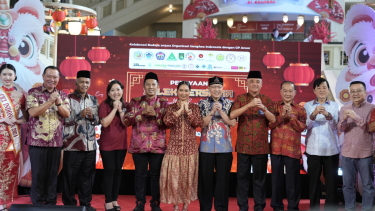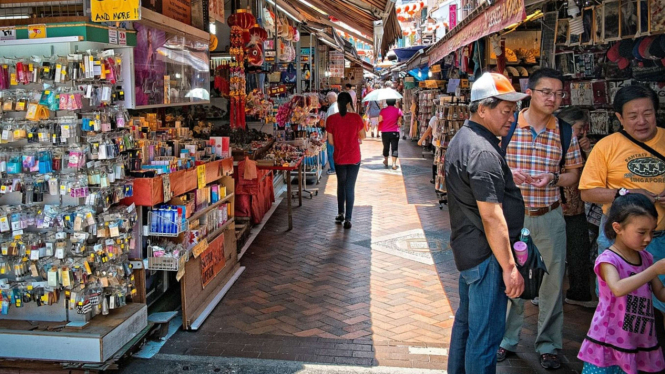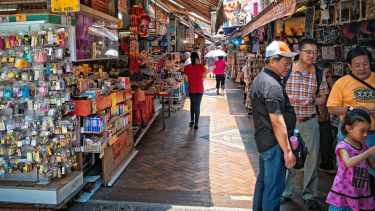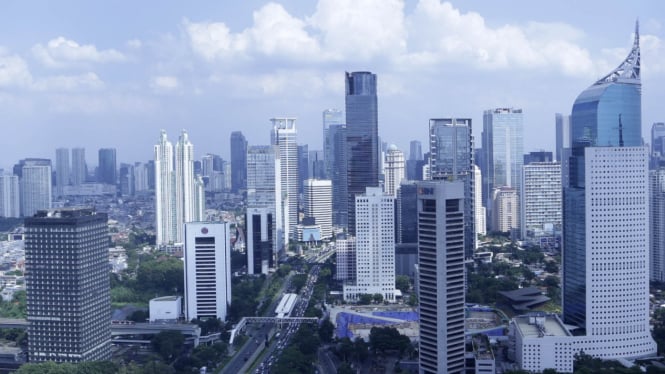Reframing Chinese Migration in Southeast Asia
- Pixabay
Jakarta, VIVA – The recent influx of Chinese nationals into Indonesia and Southeast Asia should be studied using a new academic and policy framework, according to regional experts.
Rather than labeling these individuals simply as "migrants," scholars argue for a more nuanced understanding of their presence and impact, especially given the complexities of their roles and intentions.
This perspective was prominently voiced by Professor Leo Suryadinata, senior fellow at the ISEAS-Yusof Ishak Institute in Singapore, during a seminar titled “The Role of New Chinese Migrants (Xin Yimin) in Southeast Asia”, held at Universitas Pelita Harapan (UPH), Jakarta, on June 25, 2025.
The event was co-hosted by UPH’s Master's Programs in Communication Science and International Relations, alongside the Indonesian Sinology Forum (FSI).
Professor Suryadinata, a widely respected scholar on Chinese diaspora issues and recipient of Indonesia’s cultural award in 2018, said the term "migrant" has been loosely applied to a category of newcomers from China who are mostly transient.
They come as workers, students, or investors, often in large groups, and rarely seek to assimilate with local communities.
“These groups are different from the older generations of Chinese who migrated due to poverty and chose to build new lives in Southeast Asia,” Suryadinata explained.
He added, "They do not subscribe to the idea of luodi shenggen — putting down roots in a new land. Instead, they are like lotus leaves drifting without anchoring.”
Indonesian Sinology Forum (FSI)
- Indonesian Forum Sinology
Unlike the older generations - mainly from Fujian, Guangzhou, or Hainan - who integrated into local cultures and regarded Southeast Asia as their homeland, the Xin Yimin view the region as a stopover point, not a final destination.
“Because they arrive in large numbers, they tend to interact only within their circles, making integration very difficult,” he stated.
This lack of integration, he warned, could stir social tension.
“Their presence is often tied to large Chinese investment projects, which brings both opportunities and challenges,” he remarked.
Then, he continued, there are positive effects, such as affordable technology transfers.
"But the downsides, including environmental degradation from mining and exclusion of local labor due to language barriers, cannot be ignored," he continued.
Suryadinata also highlighted issues such as cross-border online gambling syndicates involving Chinese nationals, which have taken root in countries like Laos, Myanmar, and the Philippines.
Therefore, he urged policymakers and scholars to adopt a new but balanced approach - one is critical, but not prejudiced.
In line with Suryadinata’s remarks, Triyono, M.A., a researcher at the National Research and Innovation Agency (BRIN), emphasized the economic benefits of Chinese investments in regions like Central and Southeast Sulawesi, where smelter industries have boosted local economies.
“This is a positive aspect that often goes unreported,” he said.
However, Triyono also pointed out the cultural friction caused by the influx.
“There is miscommunication, misperception, and prejudice on both sides, which can potentially lead to conflict.” he continued.
To prevent future tensions, Triyono recommended several strategies: “We need to establish cooperative institutions to address workplace disputes, facilitate cultural adaptation for Chinese workers, and strengthen Corporate Social Responsibility (CSR) practices—especially in waste management and environmental protection.”
Meanwhile, Dr. Johanes Herlijanto, Chair of the Indonesian Sinology Forum and lecturer at UPH, warned against conflating these new arrivals with long-established Chinese communities in Southeast Asia.
“It is unfair to equate them. The Chinese Indonesians, for example, are deeply rooted here and have made significant contributions to the nation. They are Indonesians first and foremost," he said.
Herlijanto noted that younger generations of Chinese Indonesians are increasingly vocal about their national identity, particularly on social media.
“They proudly declare themselves as Chinese Indonesians, not mainland Chinese,” he concluded, and calling for broader public support of Indonesia’s multicultural fabric.


































